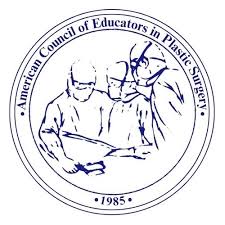A plastic surgeon deals with the repair, reconstruction, or replacement of physical defects of form or function involving the skin, musculoskeletal system, craniomaxillofacial structures, hand, extremities, breast and trunk, and external genitalia or cosmetic enhancement of these areas of the body.
What is a plastic surgeon?
A plastic surgeon deals with the repair, reconstruction, or replacement of physical defects of form or function involving the skin, musculoskeletal system, craniomaxillofacial structures, hand, extremities, breast and trunk, and external genitalia or cosmetic enhancement of these areas of the body. Cosmetic surgery is an essential component of plastic surgery. The plastic surgeon uses cosmetic surgical principles to both improve overall appearance and to optimize the outcome of reconstructive procedures.
How to become a plastic surgeon?
Specialty training required prior to certification: Six years
What does a plastic surgeon do?
Plastic surgery requires a passion for and an intimate knowledge of anatomy and physiology, with an emphasis on problem-solving skills. Plastic surgeons combine a solid core knowledge base of medicine and basic science with a strong sense of creativity and an ability to develop strong spatial and fine motor skills. The specialty is suited for mature multitaskers who are capable of managing change and a strong sense of commitment to the doctor-patient relationship—and love the technical challenge of difficult surgical solutions.
Plastic surgeons treat an array of problems from congenital issues to trauma to cancer reconstruction—and, of course, those who seek aesthetic enhancement. Patients range from newborns to the elderly, and contact with patients is direct and often intense. Depending on the subspecialty within plastic surgery, the plastic surgeon’s relationship with patients can be as a consultant (trauma reconstruction), long-term (pediatric craniofacial surgeon) and everything in between.

American Society of Plastic Surgeons/
The Plastic Surgery Foundation
plasticsurgery.org
444 E Algonquin Rd
Arlington Heights, IL 60005
(847) 228-9900
Email: [email protected]

American Council of Educators in Plastic Surgery
aceplasticsurgeons.org
500 Cummings Ctr
Ste 4400
Beverly, MA 01915
(978) 927-8330
Fax: (978) 524-0461
Contact form